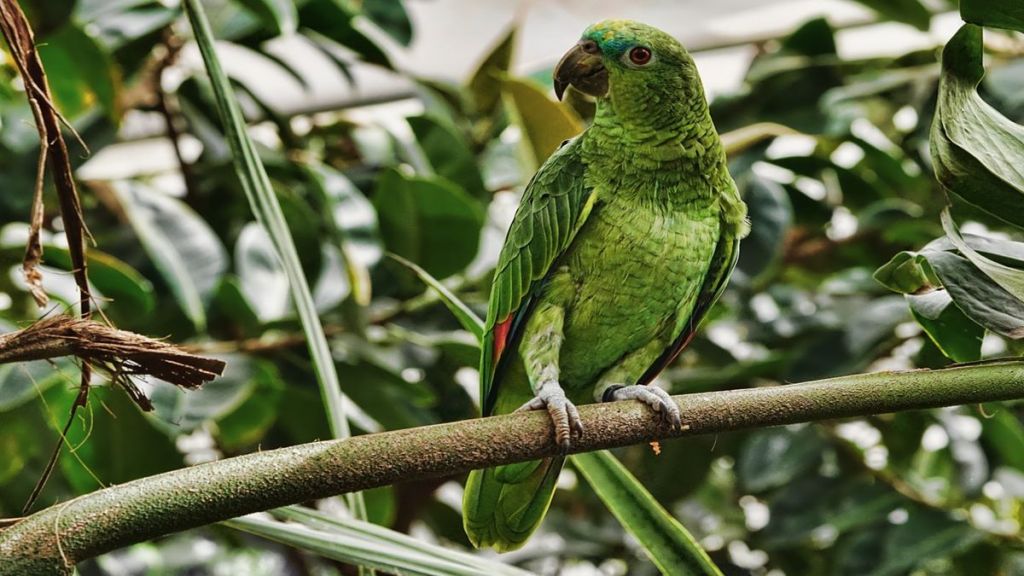Increasing cases of psittacosis, a bacterial respiratory infection, have been reported in multiple countries across Europe. According to the World Health Organization (WHO), in February 2024, Austria, Denmark, Germany, Sweden and The Netherlands reported through the Early Warning and Response System (EWRS) of the European Union, an increase in psittacosis cases observed in 2023 and at the beginning of 2024, particularly marked since November-December 2023.
Five deaths were also reported, WHO stated.
The Global Health Agency maintains that exposure to wild and/or domestic birds was reported in most of the cases.
What is Psittacosis?
Psittacosis is a respiratory infection caused by Chlamydophila psittaci (C. psittaci), a bacteria that often infects birds.
According to WHO, human infections occur mainly through contact with secretions from infected birds and are mostly associated with those who work with pet birds, poultry workers, veterinarians, pet bird owners, and gardeners in areas where C. psittaci is epizootic in the native bird population.
“The concerned countries have implemented epidemiological investigations to identify potential exposures and clusters of cases. Additionally, implemented measures include the analysis of samples from wild birds submitted for avian influenza testing to verify the prevalence of C. psittaci among wild birds,” the UN Health Body said.
The World Health Organization continues to monitor the situation and, based on the available information, assesses the risk posed by this event as low, it added.
According to the Centers for Disease Control and Prevention (CDC), psittacosis in people is most commonly associated with pet birds, like parrots and cockatiels, and poultry, like turkeys and ducks.
What is the current status of Psittacosis?
In Austria, 14 confirmed cases of psittacosis were reported from five of the nine federal states in 2023. In 2024, there have been four cases of psittacosis reported as of 4 March 2024, with the earliest onset date of 24 January 2024.
According to WHO, none of these unrelated cases notified in 2023 or 2024 have reported travel abroad and wild birds have not been mentioned as a source of infection.
In Austria, suspected and confirmed psittacosis cases, as well as deaths due to psittacosis are notifiable.
Denmark reported a marked increase in psittacosis cases from late 2023 to mid-January 2024. As of 27 February 2024, 23 individuals tested positive for C. psittaci via RT-PCR. Of the 15 other cases with exposure information available, 12 (80%) have indicated contact with wild birds (primarily via bird feeders), WHO found.
For three cases there is no information available on bird exposures, and for the remaining four cases, no direct bird contact has been reported. Transmission from chickens has been ruled out by testing of suspected birds in two of the cases with reported bird contact.
The prevalence of C. psittaci among wild birds in Denmark is currently unknown, and plans are underway to examine samples from wild birds submitted for avian influenza testing to clarify this, WHO said.
“It is assumed that the actual number of individuals infected with C. psittaci is much higher than reported. Some cases may be associated with exposure to domesticated psittacines (including parrots) or other birds that can carry the bacteria asymptomatically,” WHO said in a statement.
Germany reported an increase in individuals who tested positive for C. psittaci in December 2023 with five confirmed cases, making a total of 14 confirmed cases in 2023. In 2024, as of 20 February, another five confirmed cases of psittacosis were notified.
Sweden reported an unusually high number of cases of psittacosis in late November 2023 and early December 2023, with seven cases reported in November 2023 and 19 cases reported in December 2023. This represents a doubling of the number of cases compared to respective months in the previous five years.
In 2024, however, ten cases were reported in January and three cases in February, which is lower than the average number of cases reported in the same period in the previous five years. Overall, Sweden reported an increase in the number of reported cases of psittacosis from 2017 onwards.
The Netherlands observed an increase of confirmed psittacosis cases since late December 2023, with 21 individuals reported as positive for C. psittaci as of 29 February 2024, which is twice as many cases as the same period in previous years. Over the past ten years, there has been an average of nine cases reported during the same period.
Testing procedures have not changed in recent years in the Netherlands. Since 2018, more than 95% of the notifications are based on RT-PCR testing.
‘Disease can be transmitted through airborne particles’
Chlamydophila psittaci is a bacterium that causes the zoonotic disease of psittacosis in humans. According to WHO, human infections are generally associated with those who work with pet birds, poultry workers, veterinarians, pet bird owners, and gardeners in areas where C. psittaci is epizootic in the native bird population.
“C. psittaci is associated with more than 450 avian species and has also been found in various mammalian species, including dogs, cats, horses, large and small ruminants, swine, and reptiles. However, birds, especially pet birds (psittacine birds, finches, canaries, and pigeons), are most frequently involved in causing human psittacosis. Disease transmission to humans occurs mainly through inhalation of airborne particles from respiratory secretions, dried faeces, or feather dust. Direct contact with birds is not required for infection to occur,” the global health agency said in its statement.
What are symptoms of psittacosis?
Usually, psittacosis is a mild illness, with symptoms including fever and chills, headache, muscle aches and dry cough. Most people begin developing signs and symptoms within 5 to 14 days after exposure to the bacteria.
What is the treatment of psittacosis?
Prompt antibiotic treatment is effective and allows avoiding complications such as pneumonia. With appropriate antibiotic treatment, psittacosis rarely (less than 1 in 100 cases) results in death.
WHO also informed that human psittacosis is a notifiable disease in the concerned countries. Epidemiological investigations were implemented to identify potential exposure and clusters of cases, it informed.
National surveillance systems are closely monitoring the situation, including laboratory analysis of samples from wild birds submitted for avian influenza testing to verify the prevalence of C. psittaci among wild birds.
Overall, five countries in the WHO European region reported an unusual and unexpected increase in reports of cases of C. psittaci. Some of the reported cases developed pneumonia and resulted in hospitalization, and fatal cases were also reported.
“While birds that carry this disease could be crossing international borders, there is currently no indication of this disease being spread by humans nationally or internationally. Generally, people do not spread the bacteria that causes psittacosis to other people, so there is a low likelihood of further human-to-human transmission of the disease. If correctly diagnosed, this pathogen is treatable by antibiotics,” it stated.
WHO continues to monitor the situation, and based on the available information, assesses the risk posed by this event as low, it added.
How to prevent and control the spread of psittacosis?
WHO recommends the following measures for the prevention and control of psittacosis:
- Increasing the awareness of clinicians to test suspected cases of C. psittaci for diagnosis using RT-PCR.
- Increasing awareness among caged or domestic bird owners, especially psittacines, that the pathogen can be carried without apparent illness.
- Quarantining newly acquired birds. If any bird is sick, contact the veterinarian for an examination and treatment.
- Conducting surveillance of C. psittaci in wild birds, potentially including existing specimens collected for other reasons.
- Encouraging people with pet birds to keep cages clean, position cages so that droppings cannot spread among them and avoid over-crowded cages.
- Promoting good hygiene, including frequent hand washing, when handling birds, their faeces, and their environments.
- Standard infection-control practices and droplet transmission precautions should be implemented for hospitalized patients.









